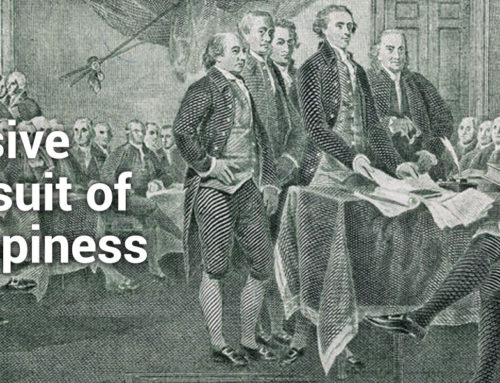In my previous newsletter article, I have defined Personal Leadership as the process of designing and then leading a happy and successful life based on your unique talents, strengths and aspirations. Having written two books on organizational and team leadership*, I have come to realize that the principles and practices used to create a successful business are the same principles you can use to create a successful life. The key element is how to define success on your terms. You need to find out who you really are and what you really want. Easier said than done!
In this and future blogs, I will review success through the eyes of key influencers from literature, philosophy, psychology, self-help gurus, sports and business. I hope to convince you that there is a common theme to achieving success and that the prevalent view that success means fame and fortune is both true and false!
One of the most influential authors on what it means to be successful and how to get there was Horatio Alger. Horatio Alger was a nineteenth century author of young adult books. He wrote seventy rags to riches stories about poor city kids who successfully escaped poverty and the News-boys’ Lodging House to lead respectable middle-class lives. The secret of their success was hard work, determination, courage, honesty and frugality. A former pastor, he espoused the concept of the Protestant work ethic brought to the US by the Puritans. His books sold over 20 million copies and his rags-to-riches stories had an enormous influence on American culture.
His most famous book was Ragged Dick – Street Life in New York with the Bootblacks* (nineteenth century term for shoe shine boys). It was actually a serial story in the juvenile magazine The Schoolmate written in 1867. It is a short, highly enjoyable book and I highly recommend it. Ragged Dick is introduced as a fourteen-year old vagabond who survives by shining shoes. He is a very likeable character, a raconteur who prides himself on his honesty (I’m a rough customer, but I would never steal!) and industriousness. His appearance leaves a lot to be desired (his pants were two sizes too large and torn in several places and he wore a vest with most of the buttons gone except two). His goal in life was to be an office boy and learn business and grow up “spectable”, even though office boys earned less money than he did shining shoes.
He earned enough to support himself comfortably and respectably but one of Dick’s faults was extravagance. He spent his earnings at the old Bowery Theatre and at Tony Paster’s bar and had a fondness for expensive cigars and frequenting the gambling house on Baxter street. Despite his faults, he was above doing anything mean or dishonorable. He would not steal, or cheat; was frank and straightforward, manly and self-reliant. Alger created a character that had all the qualities needed for success but was ignorant and unaware of what it took to be successful.
I don’t want to spoil the enjoyment of the story and the colorful characters like Johnny Nolan (the lazy one), Limpy Jim, Flora McFlimsey, Uncle Whitney’s nephew Frank (his companion), Micky MaGuire (the ruffian), and Henry Fosdick (his tutor). Suffice it to say that Ragged Dick progresses to Dick Hunter and eventually (in the second book in the series) as Richard Hunter Esq.
There were several success themes in Ragged Dick.
Education as means for self-improvement
Dick recognizes that other boys and men have better opportunities than he has due to their ability to read and write. He cultivates the friendship of Henry Fosdick, a young man about his age who has had some education.
Clothing as a path to class acceptance
Twice during the novel, Dick receives a suit of clothing as a gift or as partial compensation for a good deed done for someone else. For the first time, he notices that he is treated much better than he is usually treated by shopkeepers, vendors, and waiters. This taste of respectability is one of the things that gives Dick the desire to rise in the world.
The Value of Money
One of the things that sets Dick apart from some of the other boys is his desire to work hard and willingness to put in long hours for what he wants. However, initially Dick’s standard of living does not reflect his work ethic. At the start of the story, the homeless Dick has no regular lodgings and very ragged clothing since he spends all his earnings at the Bowery Theater and by smoking cigars and treating his friends to oysters. Over the course of the novel his habits change to become more consistent with the middle class. He and Henry no longer go out at night or spend money at the theater, but Dick spends money on a basic room instead, so the two boys have a relatively safe place to sleep and to store their belongings. The boys also open bank accounts and begin to save money. They spend, occasionally, on new clothing that will help them get a job (in the case of Henry Fosdick) or that will help them do good deeds for others, but for the most part they live frugal lives. This results in slow but steady accumulation of wealth.
I can relate to the story of Ragged Dick as both my parents grew up on Mulberry street in New York close to where the story takes place. I also shined shoes and delivered newspapers when I was young to earn spending money. I bought into the Horatio Alger myth that anyone in America, no matter their current circumstances can be successful if they get educated, work hard, and take some risk. While it has always been a myth (precious few Americans ever grow up to be rich and famous), the important point is that we all believed we could and as a result many of us built successful, middle-class lives. Having traveled throughout the world, I believe that this has been a singularly unique aspect of the American culture.
Horatio Alger novels represented the prevalent formula for the foundation of success for most of the past two centuries. Steven Covey* characterizes it as the character ethic: things like integrity, humility, fidelity, temperance, courage, justice, patience, industry, simplicity, modesty and the golden rule. The character ethic taught that there are basic principles of effective living, and that people can only experience, true success and enduring happiness as they learn to integrate these principles into their basic character.
Unfortunately, in the past fifty years or so, the basic view of success shifted from the character ethic to the personality ethic; things like public image, communication techniques, and superficial mental attitudes. Also, the success endpoint for Alger was respectability, not fame; a comfortable life, not fortune. I’m sure he would have been appalled by the popular TV series, Lifestyles of the Rich and Famous!
The greatest generation*, born at the turn of the century, directly influenced by Alger and enduring the great depression and two world wars epitomized the character ethic. The baby boomers are a split generation from my point of view; both the “me” generation of the personality ethic and the “Woodstock” generation of peace and love. I am encouraged by the values currently espoused by the millennial generation who appear to be rejecting the personality ethic and challenging the current myopic view of success as being rich and famous.
The Horatio Alger model for success continues to this day through the Horatio Alger Association of Distinguished Americans. The Association offers scholarship opportunities to worthy students and inducts contemporary role models as Lifetime Members whose experiences exemplify that opportunities for a successful life are available to all individuals who are dedicated to the principles of integrity, hard work, perseverance and compassion for others. This year’s recipient was John Maxwell, well known American author and leadership consultant, coach and pastor.
As a result of my research, I have come to believe that the definition of success has been distorted leading to a lot of unhappiness in the world. It has been externally based rather than internally based. It is easy to mistake the trappings of success (big house, fancy car, expensive watch) as satisfying one’s need for achievement only to find out that that need is never satisfied. Success is personal; achieving your personal inner goals based on your current circumstances and level of awareness. I’ll have much more to say about this in future blogs. Having wealth as a goal is not necessarily a bad thing provided that it is not a substitute for a different inner need. It should satisfy the need for achievement.
It iIt is my intention to present my thoughts in bite size portions on the role that Personal Leadership can play in obtaining real success and sustainable happiness. I will be collecting the articles and publishing them in my monthly newsletter. If you wish to be sure not to miss any of the articles that appear in social media, sign up for my newsletter here and invite your friends and colleagues to do so as well. The newsletter is free, and I won’t ask you to buy anything. I would ask however that you participate in the development of this body of work by commenting (agreeing or disagreeing) on each of the articles with your own analysis in an attempt to get at a more thorough truth not just my opinion. Finally, feel free to include your story and advice as a way of passing on the lessons you have learned about success and happiness at this point in your life. I very much look forward to our conversation.
*Leading Science and Technology Organizations, Anthony Graffeo
Becoming a Three-Dimensional Leader (download first chapter here for free), Anthony Graffeo
*Ragged Dick, Horatio Alger
*The Seven Habits of Highly Effective People, Steven R. Covey
*The Greatest Generation, Tom Brokaw


